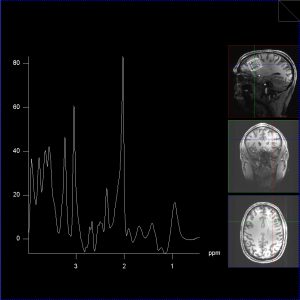October 1, 2018 – By Marlena Mumma, WLTV First News

About 24 million Americans suffer from Post Traumatic Stress Disorder. A disorder that causes anxiety and triggers flashback and memories of their trauma. That’s why one Auburn scientist wanted to better understand the neuro-biology of working memory deficits in people with PTSD.
“There’s evidence of reduced brain activity during working memory with people with PTSD and there’s some evidence of neur-metabolic abnormalities. But, nobody has tried to link the two. So, we are going to look at if the neuro-metabolites in the brain and see if they are higher or lower with people with PTSD as well as are they different throughout the course of the memory task,” said Dr. Meredith Reid, Lead Researcher & Asst. Professor in Electrical and Computer Engineering.
The researchers just received a four year $623,000 grant from the National Institute of Mental Health to go through with the study. They are looking to recruit three groups of 20 people. One group will be those diagnosed with PTSD. The second group will be those who experienced a trauma, but did not develop PTSD. The third group will be people who have never experienced a traumatic event.
The researchers tell us they will be recruiting undergraduate students from the psychology department. They said they’ve met a lot of students who are diagnosed with PTSD or have suffered a traumatic event.
“What’s special about this project is we are using MRS and MRS has been around for a while but hasn’t gotten a lot of attention. The technology allows us to look at the specific metabolites in the brain at specific locations in the brain and there hasn’t been a lot of research in that area with PTSD,” said Dr. Jeffrey Katz, Auburn University Psychology Professor.
The researchers are all partnering up from different colleges. Electrical engineering, psychology experts in imaging, cognitive psychologists and those who specialize in PTSD. All are contributing to this one big project to advance the science of this disorder.
“It will allow us to identify the metabolites in PTSD and will allow us to develop better treatments and medications and also add an important piece to the puzzle in curing PTSD in the future,” said Dr. Katz.
Last modified:
